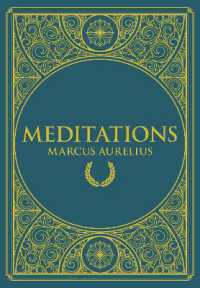Marcus Aurelius Antoninus stands as one of history’s most remarkable examples of philosophical leadership in action. Born into privilege but elevated to the pinnacle of worldly power as Roman Emperor, he never lost sight of the fundamental principles that should guide a leader’s character and decisions.
The Philosopher Emperor
What makes Marcus Aurelius unique among historical leaders is not just that he held absolute power over the vast Roman Empire, but how he chose to wield that power. His personal journal, later published as “Meditations,” reveals a leader constantly examining his own motives, questioning his actions, and striving to live according to the highest moral standards.
Unlike many philosophical works written for public consumption, Marcus Aurelius wrote primarily for himself—creating a raw, honest account of a leader grappling with the challenges of power, responsibility, and human nature.
Core Leadership Principles
1. Inner Authority Before External Authority
“You have power over your mind - not outside events.” This fundamental insight shaped how Marcus Aurelius approached leadership challenges. Rather than being reactive to external pressures, he emphasized the importance of maintaining inner equilibrium and rational thinking.
2. Service Above Self
Despite holding absolute power, Marcus Aurelius consistently viewed his role as one of service to the Roman people. His Stoic training taught him that true leadership meant putting the common good above personal desires.
3. Embracing Difficulty
“The impediment to action advances action. What stands in the way becomes the way.” His philosophy of turning obstacles into opportunities became a cornerstone of resilient leadership thinking.
Modern Applications
Contemporary business leaders, politicians, and executives continue to find practical wisdom in Marcus Aurelius’s approach to leadership:
- Decision-making under pressure: His emphasis on rational analysis over emotional reaction
- Ethical leadership: Maintaining moral standards regardless of external pressures
- Leading through crisis: The Antonine Plague and military campaigns tested his resolve
- Personal development: Continuous self-examination and improvement as a leader’s duty
The Eternal Leader
What makes Marcus Aurelius’s leadership philosophy timeless is its focus on character over technique, principles over tactics. In an age of rapid technological change and evolving business practices, his emphasis on fundamental human virtues—wisdom, justice, courage, and self-discipline—remains as relevant as ever.
His writings continue to influence modern leadership development, appearing in executive reading lists, business school curricula, and leadership development programs worldwide. The “philosopher-king” ideal he embodied serves as a powerful reminder that true leadership begins with self-mastery and moral clarity.



